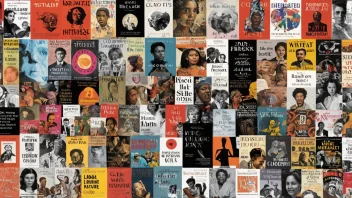Classic literature often reflects the complexities of the human experience, including the multifaceted nature of mental health. Throughout history, authors have employed their narratives to explore mental health themes, offering insights into the struggles and triumphs of their characters. This article addresses some common questions surrounding how classic literature delves into mental health issues, providing readers with a deeper understanding of these timeless works.
What are some examples of classic literature that explore mental health themes?
Many classic literary works explore mental health in various ways. Here are a few notable examples:
- “Madame Bovary” by Gustave Flaubert: This novel examines the destructive nature of unfulfilled dreams and the resulting despair of its protagonist, Emma Bovary.
- “The Bell Jar” by Sylvia Plath: Although published in the 1960s, this semi-autobiographical novel highlights the struggles with depression and identity.
- “Crime and Punishment” by Fyodor Dostoevsky: This work explores guilt, paranoia, and moral dilemmas through the troubled mind of Raskolnikov.
- “The Yellow Wallpaper” by Charlotte Perkins Gilman: A powerful short story about a woman’s descent into madness, reflecting the treatment of women’s mental health in the 19th century.
How do classic authors portray mental health issues?
Classic authors often portrayed mental health issues through character development, plot progression, and symbolism. For instance:
- Characterization: Many authors create complex characters whose mental health struggles drive their actions and decisions.
- Symbolism: Symbolic elements, such as the wallpaper in Gilman’s story, can represent the constraints placed on individuals, leading to their mental decline.
- Dialogue: Conversations between characters can reveal their inner turmoil and societal attitudes towards mental health.
What impact do these literary works have on our understanding of mental health?
Classic literature provides readers with a lens through which to understand mental health issues in historical and cultural contexts. The impact includes:
- Empathy: Readers gain insight into the emotional experiences of characters, fostering empathy for those facing similar challenges in real life.
- Awareness: These works often highlight societal stigmas and the importance of mental health awareness, encouraging discussions around the topic.
- Reflection: Readers are prompted to reflect on their own mental health and the factors influencing it, leading to a greater understanding of the human experience.
Are there specific literary movements that focus on mental health?
Yes, certain literary movements have been particularly focused on mental health themes:
- Romanticism: This movement emphasized individual emotion and the human psyche, often exploring the darker aspects of human nature.
- Modernism: Modernist writers frequently delved into the complexities of the human mind, reflecting on existential crises and alienation.
- Postmodernism: This movement often questions reality and identity, portraying fragmented mental states and the influence of societal norms on mental health.
How can readers engage with classic literature to explore mental health themes?
Readers can engage with classic literature in various ways to explore mental health themes:
- Book clubs: Join discussions that focus on mental health themes in classic literature, encouraging diverse perspectives.
- Journaling: Reflect on personal responses to characters’ struggles and how they relate to contemporary mental health issues.
- Research: Investigate the historical context of mental health treatment during the time periods of these works to enrich understanding.
What role does classic literature play in the contemporary conversation about mental health?
Classic literature continues to play a vital role in contemporary discussions about mental health. It serves as:
- A reference point: It provides historical context and a foundation for modern mental health discourse.
- A source of inspiration: Contemporary authors often draw inspiration from classic themes, integrating them into modern narratives.
- A catalyst for dialogue: Classic works often spark conversations about mental health, encouraging readers to share their own experiences and insights.
In conclusion, classic literature offers a profound exploration of mental health themes, revealing the struggles and triumphs of the human experience. By engaging with these texts, readers can foster a deeper understanding of mental health issues, empathize with others, and contribute to a broader conversation that bridges the past and present.






